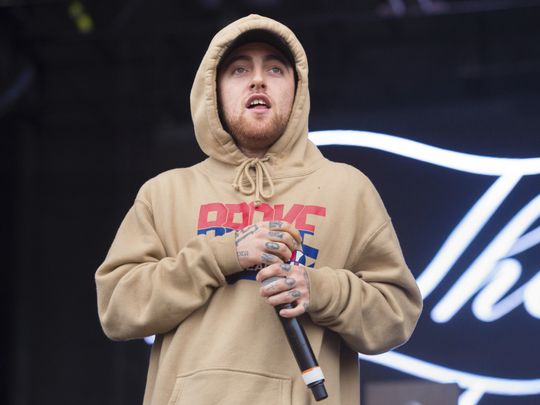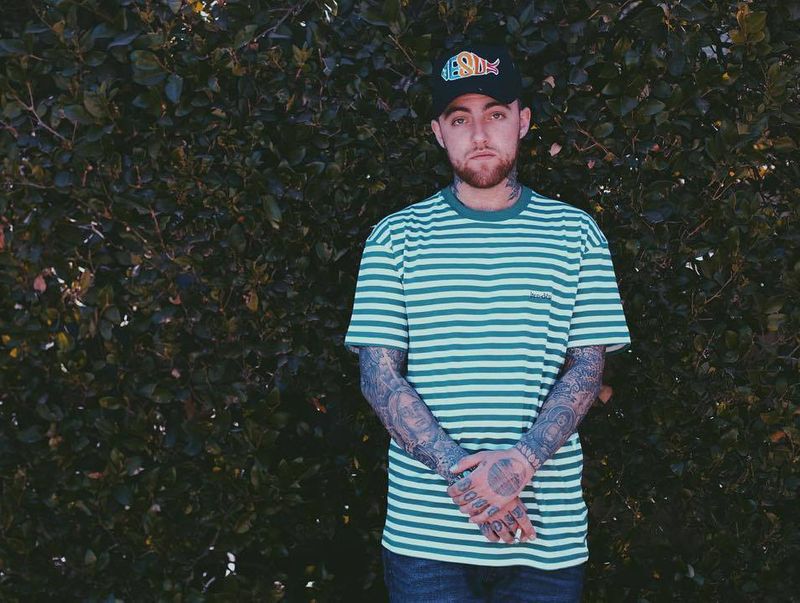
A man who indirectly caused the death of rapper Mac Miller in 2018 has pleaded guilty to distributing fentanyl, and could face up to 20 years in federal prison and a $1 million (Dh3.7 million) fine.
Stephen Walter was one of three people charged in 2019 after he was found to be part of the supply chain that provided the rapper with the fentanyl-laced oxycodone pills that led to the fatal overdose. Two others, Ryan Michael Reavis and Cameron James Pettit, have pled not guilty to similar charges, and will go on trial in March 2022, according to Pitchfork.

According to court documents reviewed by People, Walter “knowingly and intentionally directed Ryan Michael Reavis to distribute fentanyl in the form of counterfeit oxycodone pills, to Cameron James Pettit” on September 4, 2018.
Walter “knew that the pills that he directed Reavis to give to Pettit contained fentanyl or some other federally controlled substance, and at all relevant times intended for Reavis to distribute the pills to Pettit. Later that evening, at defendant’s direction, Reavis delivered the pills to Pettit. Shortly thereafter, Pettit distributed these pill containing fentanyl to [Miller],” the documents state.
Miller was 26 when he died of an accidental overdose of the powerful opioid fentanyl, along with cocaine and alcohol. He was a much-loved and well-respected artist who used his music to discuss difficult topics such as his addictions and depression.
According to the 2019 indictment, Pettit on September 5, 2018 sold Miller cocaine, Xanax and 10 blue pills that appeared to be oxycodone but contained fentanyl, after the two had exchanged text messages a day earlier.
Two days later, Miller’s assistant found him dead at his Los Angeles home.
Fentanyl has contributed to an epidemic of opioid abuse in the US that has claimed thousands of lives, including those of other celebrities such as singer Prince and actors Michael K Williams and Logan Williams.









